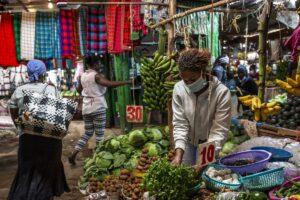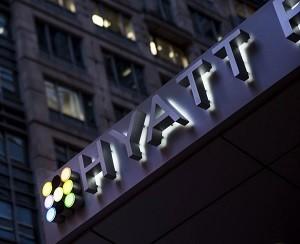- Kenya, Tanzania braces for torrential floods as Cyclone Hidaya approaches
- EAC monetary affairs committee to discuss single currency progress in Juba talks
- Transport and food prices drive down Kenya’s inflation to 5% in April
- Payment for ransomware attacks increase by 500 per cent in one year
- History beckons as push for Kenya’s President Ruto to address US Congress gathers pace
- IMF’s Sub-Saharan Africa economic forecast shows 1.2 percent GDP growth
- The US Congress proposes extending Agoa to 2041, covering all African countries
- Millions at risk of famine as fuel tax row halts UN aid operations in South Sudan
Browsing: African Development Bank (AfDB)
In an interesting development, while demand for gold is on the rise all over the world, gold output in Zimbabwe has fallen 17 percent in the last four months.
Why? Well, because of Covid-19. Strange because it is a result of the pandemic that world demand for gold is on the rise as people try to store the value of their money in gold.
Yet in Zimbabwe, small scale miners in the country are failing to conduct their mining activities because the country does not have the needed cash to buy mining inputs. Well let’s not say the country doesn’t have cash because it does, its just that no one will accept the Zimbabwean dollar.
Also Read: Barrick Gold back to business with Tanzania
So the trouble is that, Zimbabwe relies on other currencies, like the US dollar to make large and small payments alike like explosives among other things. …
As hotels in East Africa are closing their doors as the effects of the global pandemic continue to bite, Tanzania is making moves to ward off the negative effects of Covid-19 by resuming business as usual, including in its tourism and hospitality sector.
In fact only this past week, Tanzania has announced that it will host its first Mafia Island Tourism Exhibition Week. The ambitious and bold move is in line with other measures that the country is taking to revive its tourism sector.
The country has already set aside millions of dollars to improve tourists experience at one of its major attractions, Mt Kilimanjaro. Tanzania has set aside money to cut out a new route to climb the mountain. This new route is exclusive for VIP tourists and other VIP personnel and is expect to boost tourism in the region.
Also Read: Tanzania’s Tourism Board unveils luxury route to
…Tanzania has joined the rest of the continent in lowering borrowing rates for commercial banks in a bid to maintain their liquidity.
Tanzania’s Central Bank the Bank of Tanzania, (BoT) has cut down interest on borrowing from 7 percent to 5 percent, a move that has been welcomed by the business community.
It has also chopped rates on government securities by half, starting with treasury bills which it brought down to 5 percent from 10 percent and treasury bonds to from 40 percent to 20 percent.
These latest series of monetary measure is backed with the lowering of the required minimum cash reserve that commercial banks are otherwise required to maintain at the Central Bank.
The goal is to stimulate the economy by giving commercial banks the leeway to lower their lending rates which in turn should see business access the operating capital they need. The BoT did not stop …
There is no sugar in Tanzania. The little that there is, is very hard to come by and when you do find it, its many times more expensive than you would have bought it last month. It is barely a fortnight since the government confidently said the country has enough sugar and went ahead and placed a cap on sugar prices.
To bring things under control, nationwide crackdowns were carried out and several warehouses were found with allegedly hoarded sugar, fines were issued and arrest made in shops and other outlets where the sellers were price above the government cap, even awhile consignment was seized been smuggled out of the country.
Yet still, two weeks later, there is no sugar. Been the Holy Month of Ramadhan, lack of sugar severely affects the day to day social well being. Most of the staples and beverages need sugar, the tea needs sugar …
Did you know, last year (2019) Africa spent more money servicing debts than the amount it spent on health issues of its public? This obviously a general statement, it does not mean that each and every country in Africa spent more on debt servicing that the money it allocated to its health center, but the fact holds true for most of Africa’s 53 countries.
It is not that Africa does not care about the health of its people, on the contrary, its just that, according to World Bank stats, Africa is home to the World’s highest number of heavily indebted poor countries owing a total of USD 493.6 billion in long term debts.
As the World Bank and International Monetary Fund issue funding aid to help support Africa respond to the effects of the COVID-19 global pandemic, many African countries including Tanzania and Rwanda have asked that the international community …
Phase one of Tanzania’s Stand Gauge Railway (SGR) that extends from Dar es Salaam to Morogoro is almost complete.
The railway which covers over 300 kilometres is almost complete and the country is now getting ready to buy the trains that will run on the track.
Even though its first phase is not entirely complete due to the ongoing heavy rains that have stalled construction work, the country is ready to move on and buy and test the trains.
Unofficial reports say the government of Tanzania has started bidding for trains and is actually in the process of finalising procurement of at least two locomotives already. That’s not all, the required trains should have at least eight compartments for passengers and same number of wagons for cargo transportation.
Already the testing of trains has started, a senior official of the Tanzania Railway Corporation (TRC) intimated. It is expected that the …
China has been funding a lot of Africa’s development especially in the past two decades and in that time, Beijing has loaned to Africa a whopping USD160 billion.
This debt burden is here to stay, and to stay for a long time, that is unless China is willing to forego or at least ease the terms of the loans. To put it in the words of the US Secretary of State Mike Pompeo;
“It is something that the African countries should consider, too, in asking China to possibly enter debt relief on some deals that have incredibly onerous terms that will impact the African people for an awfully long time, if relief is not granted.”
This should not be a problem for the runner’s up for World’s biggest economy, in fact China is among the world’s richest 20 countries which are known as the Great 20 or more …
The Impact of COVID-19 on agriculture value chains especially transportation logistics is immense. Economies must adopt, industries and sectors must find their own solutions to the bottlenecks in the agri-food supply chain.
Now that it is no longer business as usual, what makes up for robust food supply chains when borders are shut down? Will air travel cut prizes and yet break even in cross border food supply routes? What technological advances must we embrace in food production to bridge the growing supply gap? How can digital systems help speed up logistics integration in the transportation sector?
These are the questions that must be answered to charter the way forward for Africa’s food security and maybe even the World’s.
https://theexchange.africa/industry-and-trade/agribusiness/how-africas-122-million-mobile-banking-accounts-can-fund-agriculture/
While the COVID-19 crisis has brought to our door steps the largest challenge for food security of modern times; with lock downs, quarantines and logistics disruptions not to mention the …
No continent suffers worse food security issues than Africa, yet despite the high productivity coupled with disease and drought resistant capabilities of genetic modified organisms (GMOs), Africa has long been resistant to genetically modified food, be they crop or animal embryos.
While the average beef cattle in Africa, say the local Zebu weighs an average weight of a mere 250kg market weight, hybrid beef cattle like the Aryshire, weighs an average of 400kg, almost double the local African breed.
Instead of settling for 1 to 3 litres of milk per day from your local Zebu, you could get in excess of 10 litres of milk everyday from a hybrid Fresian, almost four times more milk.
Not only does the Aryshire beef bull and the Fresian cow produce more, they grow faster and when crossbred, they are even resistant to disease and bad weather. So why would food troubled Africa resist …
While all other agricultural exports are suffering reduced demand owing to the Covid-19 global pandemic, that is not the case for tobacco which has recorded remarkable increase in sales at the beginning of the marketing season.
Reports from Zimbabwe say export of flue-cured tobacco is stable and prices are firm, with tobacco sales having increased more than quadrupled over the cause of the last and the present season. Last season closed with sales of USD232 008 but this season has opened with sales of USD1 598 230 that is a 588 percent increase!
As market season opened at the start of the month, an impressive USD1.6 million was sold. With attractive prices that begun above USD 5 per kilogramme, farmers were more than willing to sell. Only three days after the marketing season opened, farmers had sold almost 700 000 kilogrammes of tobacco.
The country’s Tobacco Industry and Marketing Board …













